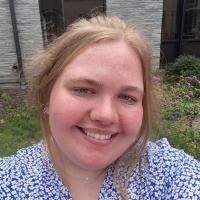Before I became a consultant at the WRC, I made over 50 appointments as a student, and I don’t plan on stopping.

In my first semester of college, I confused an author’s middle name for his last name. The following year, I described William Shakespeare as “commenting on nineteenth-century sex politics” instead of the seventeenth century’s. Then, in an upper-level English seminar, I forgot to double- and triple-check my spelling, stringing words together without spaces for half of a sentence.
Now that I’m a rising senior, you would think I’ve learned all I can when it comes to writing, but no.
While amusing and sometimes obvious, these errors reflect where I was as a writer: growing. I came to William & Mary with a thick Appalachian drawl and no idea what a “college-grade” paper looked like. As the first in my family to attend a four-year university, I was also the first to stumble through an essay’s first, second, and third drafts, let alone the first to make the above mentioned mishaps. My mom, who has always been my biggest supporter, couldn’t advise me on what tense to write in or how to format my paper.
So, I made an appointment with the Writing Resources Center, or the WRC, as I’ve come to know it.
After my first few visits to the WRC, it was clear that my home, albeit seven hours away, heavily informed my authorial voice. Before attending William & Mary, I attended a high school in an educationally and financially underserved community with limited access to writing preparation courses. I wrote a lot, yes, and had a couple of classes that helped hone my writing abilities, but I couldn’t answer questions about what makes a strong thesis statement or the difference between Chicago style and MLA, or why you shouldn’t end a sentence with a preposition. These questions made me feel I was “behind” academically, like I would never make it to my senior year.
I did make it to my senior year (I’m writing this blog post now, two weeks away from my last first day at William & Mary), and that’s because of the support I found at the WRC. The peer consultants I met with answered these questions and didn’t make me feel embarrassed to ask them because, at the end of the day, they were students like me who faced similar challenges when writing. We found the answers together, talking through how a thought-provoking, argumentative claim is key to a good thesis and that the difference between Chicago and MLA boils down to footnotes and endnotes versus in-text citations. I even found the answer to my preposition question: you can end a sentence with a preposition. The conversations I had in the WRC with peer consultants also taught me how to grow from my middle name-last name, Shakespeare, and spelling blunders because to become a better writer, I had to accept there is no such thing as a “perfect” writer. Realizing that I’ll never produce error-free papers has allowed me to grow into myself as a writer, organically and positively.
Before I became a consultant at the WRC, I made over 50 appointments as a student, and I don’t plan on stopping. I’ve made 65 and plan to exceed 70 by the time I graduate this year because each consultation presents a new learning opportunity. Thanks to the WRC and its supportive team, I know I’m not a small-town girl who’s “behind;” instead, I’m a proud, educated woman moving forward, ready to take on any essay topic, word limit, or deadline–mistakes and all.

